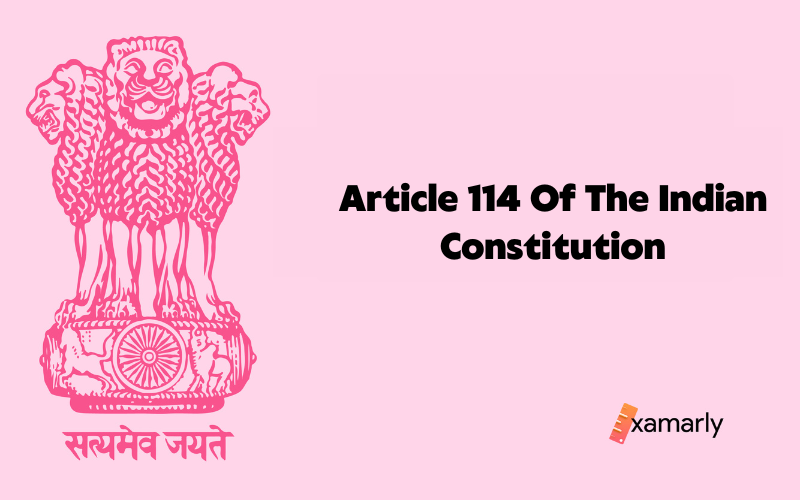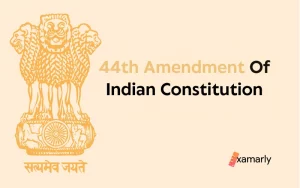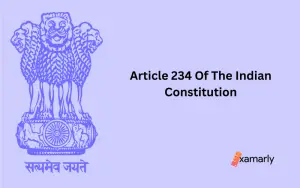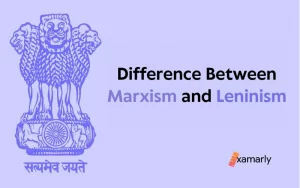Overview
Article 114 talks about the procedures and protocols that are to be followed after the proceedings are done according to Article 113 of the Indian Constitution.
Article 114 of the Indian Constitution can be understood as an extension of Article 113 of the Indian Constitution. It reflects on how the bill will proceed further after the Lok Sabha has given its stamp to the financial statement that was presented in the House.
Let us understand the concept of Article 114 of the Indian Constitution by analyzing each and every clause present in it.
Article 114 Of The Indian Constitution – In Detail
Clause 1 – As it is & Explained
“114. Appropriation Bills
(1) As soon as may be after the grants under article 113 have been made by the House of the People, there shall be introduced a Bill to provide for the appropriation out of the Consolidated Fund of India of all moneys required to meet
(a) the grants so made by the House of the People; and
(b) the expenditure charged on the Consolidated fund of India but not exceeding in any case the amount shown in the statement previously laid before Parliament”
The first clause of Article 114 of the Indian Constitution says that
(1) A bill shall be introduced to provide for the appropriation out of the Consolidated Fund of India of any money required to meet grants granted under Article 113 as soon as the Lok Sabha has given its accent. They shall be introduced to meet the requirements of
(a) such allocations made by the Lok Sabha
(b) the cost billed to the Consolidated Fund of India, which must not exceed the figure reported in the statement submitted to Parliament as a financial statement.
Clause 2 – As it is & Explained
“(2) No amendment shall be proposed to any such Bill in either House of Parliament which will have the effect of varying the amount or altering the destination of any grant so made or of varying the amount of any expenditure charged on the Consolidated Fund of India, and the decision of the person presiding as to whether an amendment is inadmissible under this clause shall be final”
The second clause of Article 114 of the Indian Constitution says that there shall be no amendment proposed to any such Bill in either Lok Sabha or the Rajya Sabha that can change the amount that was decided earlier that has to be taken out from the Consolidated Fund of India.
The amount that has to be granted shall be the same as it was presented in the financial statement that was presented earlier. Even if the amendment has to be done, the presiding person, who may be the Speaker or the Deputy Speaker of the Lok Sabha, will decide if the amendment has to be agreed upon or not.
Clause 3 – As it is & Explained
“(3) Subject to the provisions of articles 115 and 116, no money shall be withdrawn from the Consolidated Fund of India expect under appropriation made by law passed in accordance with the provisions of this article”
The third clause of Article 114 of the Indian Constitution says that according to the provisions made under Article 115 and Article 116 of the Indian Constitution, no money can be withdrawn from the Consolidated Fund of India until and unless an appropriation bill has been passed in the House of People, as mentioned in Article 114 of the Indian Constitution.
Summing Up
We can conclude from this article that the provisions that have been made under Article 114 of the Indian Constitution have to be strictly followed and complied with.
There cannot be any transaction without going through all the procedures mentioned in Articles 113 and 114 of the Indian Constitution.
FAQs
What are Appropriation Bills?
The Appropriation Bills are such bills that are presented in the House for the supplement, additional or excess amount over the budget that was presented in the Demand for Grant.






